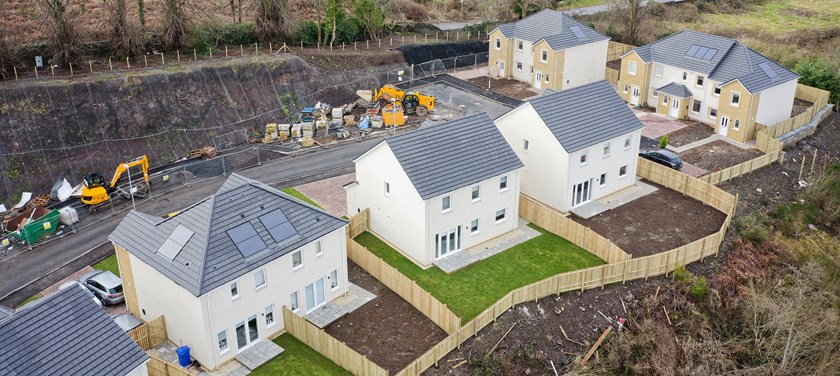Agreements for the promotion and sale of development land
Insight

The message from the government is clear: the housing market is broken and more homes need to be built. The need for houses provides significant opportunities for religious organisations which have surplus land. This article focuses on the building of houses on open land, such as playing fields, but many of the same principles apply equally to the conversion of existing buildings into residential accommodation.
In the majority of cases where a landowner is looking to obtain planning permission for a development, and then sell the land, the landowner will need to rely to some extent on the expertise of a developer. The developer (sometimes called a promoter) should have a track record of successful planning applications in the local area and understand well how the planning authority works. They will often also have experience of selling sites with planning permission or building out sites themselves.
There are different types of agreements which can be entered into with a developer where a property-owning religious organisation seeks a planning permission and then a sale with the benefit of the planning permission. Where more than one landowner is involved, generally an overarching (or collaboration or consortium) agreement is needed between the landowners to enable the pooling of land and resources. Collaboration and consortium agreements are complicated, particularly in relation to tax.
Promotion Agreement
A promotion agreement contains a general obligation to promote a site for planning at the developer's risk. Sometimes it also provides for the marketing and sale of the site. The agreement is often entered into at a fairly early stage in the planning process, and the definition of 'development' can be quite indistinct. The landowner is relying on the expertise of the developer.
The size of the promotion fee will depend on the level of risk involved in obtaining planning and is usually a percentage of the sale price/market value. Where there is a sale, the promotion fee will be paid out of the sale proceeds and the promoter's costs will normally be reimbursed too.
Option Agreement
An option agreement gives the developer the right to buy in particular circumstances (generally the grant of a satisfactory planning permission). Typically the developer will pay (on exercise of the option) a percentage of market value. This creates a tension between the landowner and the developer as the landowner will try to keep the land value high and the developer will want a lower value. It is essential for the landowner that the option agreement provides for a minimum sale price. The agreement will contain specific planning obligations on the developer.
Conditional Sale Agreement
Under a conditional sale agreement, a landowner is obliged to sell and the developer is obliged to buy if certain conditions are satisfied (again, generally the grant of a satisfactory planning permission). The agreement will normally tightly define what constitutes acceptable development. There should be a fixed price or pricing formula (not usually open market value) with deductible costs. A conditional sale agreement will typically have a tighter timescale than an option agreement but, again, must have a minimum price to protect the landowner's interest.
A conditional sale agreement will often contain overage provisions, which can be calculated in a variety of ways. The simplest is a percentage of gross receipts over a set figure.
Joint Venture
Joint ventures can take various forms but a typical arrangement involves the landowner putting in the land and the developer obtaining planning, building out the site and then marketing the built houses for sale. The landowner will often retain the freehold up to the point of sale to the ultimate house buyer. Generally, the developer will pay a sum up front to the landowner and the sale proceeds from the house sales are then split between the landowner and the developer on agreed percentages.
The identity of the developer is crucial. As the landowner still owns the freehold during construction, the landowner retains a certain amount of control, but the landowner will want the houses to be properly built. Planning and construction milestones are common.
Own Development
The landowner appoints (either through a development manager or itself) all the relevant professionals required to promote the site for planning and, if desired, to take it through to development and sale. Developing land oneself involves a number of contracts, with each contractor having a defined role.
The owner takes all the risk. Some costs may be considerable and there is no guarantee of a planning permission for an economic scheme. On the other hand, the landowner takes all the upside if the development is successful.
Which type of Agreement?
Choosing the type of agreement which is suitable for the landowner will depend on a range of factors, including:
Appetite for risk
The two extremes are to do it all oneself, or enter into an option with the developer and have no more to do with it. The more risk a landowner takes, the greater the potential upside.
Tax
A charity is only permitted to carry out limited non-primary purpose trading without being subject to tax on the resulting profits. Often a trading subsidiary needs to be set up to allow development profits to pass to the charity with gift aid.
Care needs to be taken with “slice of the action” overage arrangements as part of sales. Even where the seller is a charity, tax may be payable where the charity receives a percentage of the ultimate sale proceeds made by the developer out of the houses it builds. There are potential VAT and SDLT traps and so specialist tax advice should be sought.
Desire for control
There is a balance here between the landowner imposing its wishes and putting off the developer. Sometimes a landowner will be happy simply to maximise value. In other cases, the landowner may want to influence the design of the project, particularly where it is close to a key building or it opens up the possible development of adjoining land where connecting roads or services may be required.
The length of the agreement and likely timing of a sale can be important. Capital may be needed at a particular time for, say, repairs to a church. In the longer term, generational change can lead to a different perspective on whether a development is worthwhile.
A minimum price or net sales receipt will often be required and deductions need to be monitored carefully and capped where appropriate.
Identity of the developer
Even if the developer makes the planning application in its own name, it is the owner's land (and often reputation) at stake. It is important the developer understands and respects the landowner's values and that the landowner has seen other projects completed by the developer.
Most agreements will prohibit assignment by the developer and the agreement should also deal with what costs should be reimbursed if the agreement is brought to an end. In those circumstances, the landowner will want all surveys and plans to be handed over together with the relevant intellectual property.
There is no 'one size fits all' agreement. Landowners of all kinds need to give careful thought to their objectives and professional advice should be taken. However, there are exciting opportunities and, given the housing shortage, we see the opportunities continuing for landowners for many years ahead.
If you require further information please contact Paul Krafft or Rachel Lewis, or your usual contact at the firm on +44 (0)20 3375 7000.
This publication is a general summary of the law. It should not replace legal advice tailored to your specific circumstances.
© Farrer & Co LLP, June 2018







